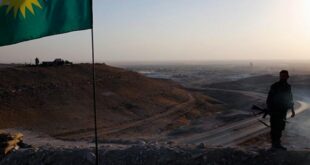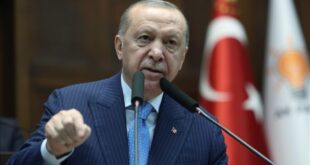With hundreds of confirmed cases of COVID-19 in the Balkans, a few people have taken on the burden of keeping the public calm and well-informed. BIRN takes a look at some of them.
With cases of COVID-19 on the rise in the Balkans, BIRN took a look at some of the people keeping the public informed and winning plaudits for their calm communication in the face of scare-mongering and fake news.
Some are government officials or the public faces of state bodies involved in the fight against coronavirus; others are experts or those with first-hand experience, who use their influence, particularly via social media, to keep the public up-to-date.
Croatia
Alemka Markotic, head of the Fran Mihaljevic Infectious Diseases Hospital in the Croatian capital Zagreb, has experience in crises, having worked as a general practitioner in besieged Sarajevo for most of the 1992-95 Bosnian war.
She and Health Minister Vili Beros have won praise for their level-headed public statements and appeals for calm after Croatia, on February 25, became the first country in the region to report a confirmed case of COVID-19. The authorities have updated the public daily ever since, online and via press conferences.
“It started great,” communications expert Ankica Mamic said of the flow of information from public bodies. She singled out Markotic and Beros, and said Interior Minister Damir Bozinovic and Prime Minister Andrej Plenkovic had also responded well.
One episode, however, “did great damage because panic rose to a higher degree,” Mamic told BIRN.
On Sunday, March 15, Croatian media published a leaked document signed by the head of the capital’s Emergency Management Office, Pavle Kalinic, urging city authorities to shut down cafes and restaurants, gyms and sports facilities and limit the operations of shops. The National Civil Protection Headquarters has not, so far, announced any such measures, and clarified that it was important to maintain a balance between “the epidemiological situation and the severity and breadth of the measures”.
Mamic said clear communication of the facts was vital in such situations. “The key thing… is to communicate the facts so that we have the smallest number of fake news as possible,” she said.
North Macedonia
Health Minister Vernko Filipce has become the public face of North Macedonia’s fight against COVID-19, winning praise for his calm, serious demeanour and precise information on the number of confirmed cases, their conditon and how many tests have been conducted.
“Now, finally a normal politician”, or “That’s how you do it” are just some the comments left on the government’s YouTube channel during his appearances.
Filipce has provided daily updates on the situation, on any new measures taken by the government and any new advice for the public. He sets aside time for questions from reporters, addressing a range of issues, from medical supplies to measures being taken to protect the most vulnerable in society.
The minister has tripped up only once so far, when it emerged that Skopje’s dermatology clinic, with over 100 people inside, had been placed under quarantine after the clinic’s head failed to report a trip to Italy and spent a week at work before being diagnosed with the virus.
The opposition VMRO-DPMNE party announced criminal charges against Filipce, accusing him of being aware of the director’s trip to Italy. Filipce strenuously denied any knowledge of the official’s travel and said she would be fired immediately.
Turkey
As in North Macedonia, Turkey’s health minister, Fahrettin Koca, is the face of the country’s coronavirus fight.
Turkey has reported relatively fewer confirmed cases than its neighbours, despite being a popular tourist destination and airline transfer hub, a fact observers attribute to its swift response, including the closure of schools and uncompromising quarantine orders.
Koca holds regular press conferences and has jettisoned the high-flying rhetoric of most politicians in favour of up-front, fact-based briefings for the public.
“Corona[virus] is not stronger than our precautions,” he told reporters on March 10 when the first case was confirmed in Turkey. “We prepared ourselves and we are ready.”
The Turkish Health Ministry has also launched a publicity campaign via public service ads and social media platforms to tell Turks how to best protect themselves from COVID-19.
Montenegro
Though it is one of the few states in Europe yet to report a confirmed case of COVID-19, the government in Montenegro has already launched a ‘stay at home’ campaign, urging Montenegrins to work from home and avoid public places.
Senad Begic, an epidemiologist at the Montenegrin Institute of Public Health and the institute’s chief PR official, reports daily on the situation and has promoted the ‘stay at home’ campaign on social networks and mainstream media, urging citizens to comply with prevention measures.
“We have been given the opportunity to understand how dangerous coronavirus is in the mistakes and problems of others,” Begic said on Sunday. “Please, take preventive measures and stay at home.”
Bosnia and Herzegovina
More than any other official, Alen Seranic, health minister in Bosnia and Herzegovina’s Republika Srpska entity, has become the face of the coronavirus fight since Republika Srpska reported the first confirmed case in the country.
Seranic, a medical doctor and specialist in epidemiology, is in charge of the Republika Srpska government’s Epidemiological Situation Headquarters leading the response to COVID-19.
Considering his professional background, “Seranic is a very competent person,” said Srdjan Puhalo, a psychologist based in Banja Luka, the administrative centre of the Republika Srpska. “And they [the Republika Srpska government] moved on time to communicate with the people and in one, smart way, gained authority. They started on time to prepare people for what was coming.”
Puhalo said it was good that politics, and politicians, appeared to have taken a back seat for the timebeing.
“Security and control is the message he [Seranic] sends,” Puhalo told BIRN. “And the citizens, for now, trust him. But we’ll see how things go when the epidemic spreads across the country and when the first deaths occur.”
Kosovo
Kosovo’s Prime Minister Albin Kurti, has been promoting elbow bumps when he greets ministers at sessions of his cabinet. He has been particularly active on social media, posting information and advice concerning coronavirus, updates on government measures and sharing videos of celebrities urging Kosovars to stay at home.
Kurti posted a video thanking people for staying at home and explaining what someone should if they suspect they have the virus and how to avoid catching it in the first place.
He has urged Kosovars to make use of the time spent at home, by reading, watching movies and listening to music. Kurti has singled out for praise all those working in the health sector and the police.
Moldova
Moldovan authorities have been accused of poor communication with the public and of withholding information about COVID-19.
Prime Minister Ion Chichu and President Igor Dodon rounded on Moldovans fleeing Italy for their homeland, even naming some of them.
Instead, many Moldovans have turned to former Health Minister Ala Nemerenco, a renowned medical expert who has taken to posting information and advice on Facebook and making media appearances.
The current pro-Russian government has been less than enthusiastic about Nemerenco’s interventions, not least because she was a minister in the previous government of pro-European former Prime Minister Maia Sandu.
“For example, I obtained for them [the government] the latest protocols for coronavirus treatment, including the protocol for patients requiring resuscitation,” Nemerenco told BIRN. “I sent the documents to the Health Ministry and included other senior officials in the email. No one gave feedback, not even confirming they received it.”
Nemerenco posts daily updates on Facebook on the situation globally and on how Moldovans can best cope with the crisis.
“Everyone writes to me,” she said. “I think I will have to open a hotline to advise people who ask me all the time for tips on how to behave during this epidemic. I receive messages even at midnight,” she said, reflecting the “visible state of panic in our society.”
Serbia
In Serbia, where the government has introduced a state of emergency, some are less than confident in the ability of authorities to deal with the crisis or keep the public properly informed.
Bojan Radovic, a Serbian citizen living in China, is one of those stepping up, sharing his experiences and confirming or debunking information about the virus on Twitter.
Radovic has tweeted about the numbers of infected people, his experiences of being unable to go out, and then finally venturing beyond his front door, and useful facts about COVID-19.
In late January, he warned about the possibility of a shortage of surgical masks.
“When it comes to virus protection, there are different masks that are effective, but I don’t think they are crucial,” he wrote. “If you have seen any images from Wuhan hospitals, you have noticed that doctors and other staff wear eye protection. That’s right, eyes are also an entrance-point.”
Radovic also helped debunk the myth that hot water can fight the virus.
“Hot water is not a cure for the coronavirus,” he tweeted. “Hot water is the No.1 drink among the Chinese, what you first learn here, a very healthy habit and a thing I recommend to everyone in the summer and winter, but it has absolutely nothing to do with fighting the virus. Hot water is just hot water.”
 Eurasia Press & News
Eurasia Press & News



